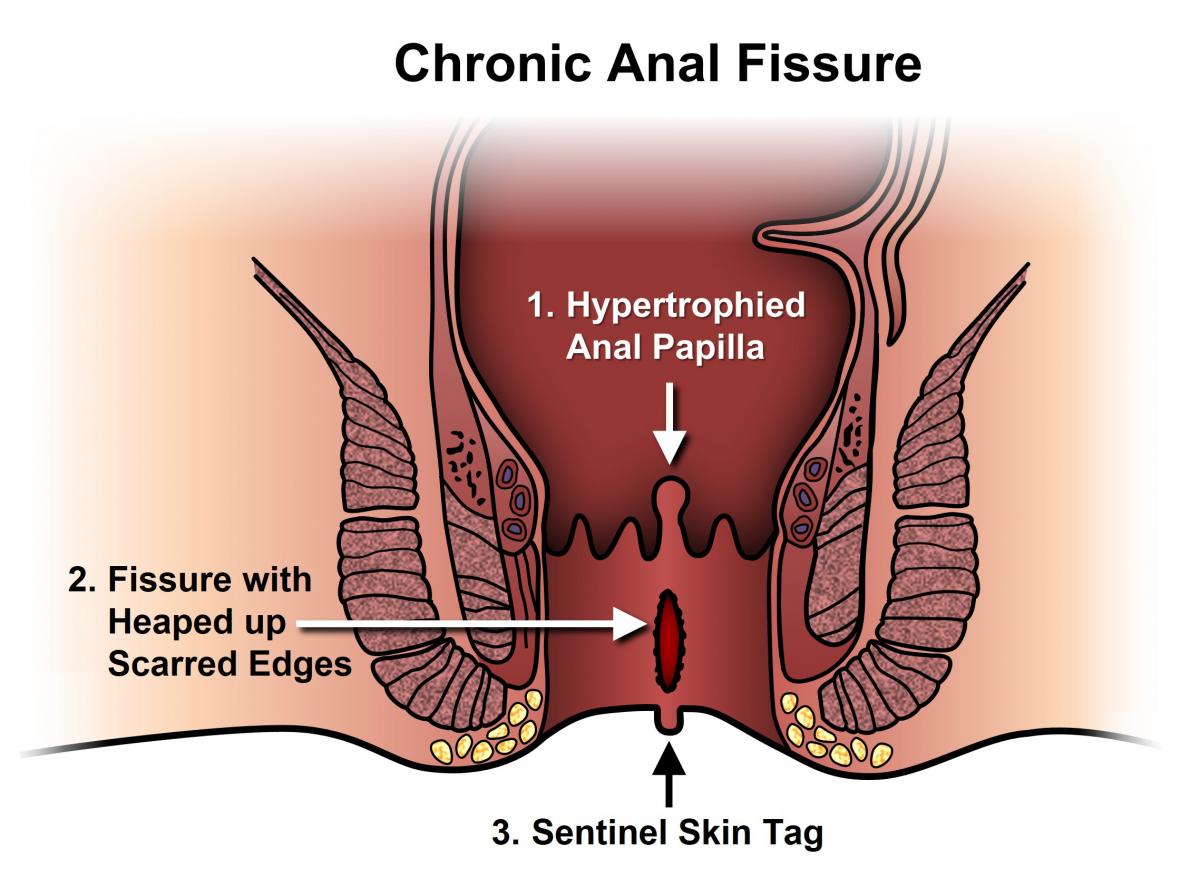





An anal fissure, also known as anorectal fissure or fissure in ano, is an open sore or laceration that forms in the lower portion of the anal canal, close to the anus and rectal lining. These are typically widespread as a result of blood vessel irritation.
Book AppointmentThere are two types of superficial skin tears in the anal region: acute anal fissures and chronic anal fissures. Distal to the dentate line is where they are situated. Hemorrhoids and anal fissures are both prevalent, and they both make it much harder to pass the feces.
Anal fissure frequency (fissure in ano) Anorectal fissures, also known as anal fissures, are frequently observed in middle-aged and newborn patients. The precise incidence or prevalence of anal fissures has not been the subject of any evidence-based research for the past 30 years; this could be because the condition is mistakenly associated with hemorrhoid symptoms.
Anal fissures are more common in patients with comorbidities such as chronic constipation, inflammatory bowel disease, hypothyroidism, obesity, and solid tumors without spreading. Nevertheless, the frequency is higher in females than in males.
Anal fissure types (fissure in ano) Based on how long they have existed, anal fissures (also known as anorectal fissures) are divided into two categories:
• Acute anal fissures: These are defined as anal fissures that last less than six weeks. When it comes to acute anal fissures, conventional procedures are not necessary because they heal quickly with basic care. The mild to moderate symptoms normally go away in six weeks.
• Chronic anal fissures: Anal fissures that continue longer than six weeks are considered chronic and frequently worsen the symptoms over time. According to Dr. Kunal Oswal, the majority of people may not experience natural healing in the absence of assistance, while a tiny percentage may. Less than 10% of patients have been shown to respond well to conventional therapy, with the remainder requiring additional medical care. For example, persistent anal fissures can cause excruciating discomfort, anal spasms, and blood during bowel movements.
Anal fissures, or fissures in ano, have the following causes:
Hard stools from constipation can pass, which increases the risk of anal tears.
• Diarrhea: Because the skin around the anus is so delicate, diarrhea can tear or break the skin, resulting in fissures.
• Crohn's disease and ulcerative colitis are examples of inflammatory bowel illnesses. The common side effects of inflammatory disorders, such as severe symptoms like constipation and prolonged diarrhea, are perianal diseases (piles, and fissures).
• Sexually transmitted infections (STIs) such as syphilis, HIV, and others can result in sores, ulcerations, and bleeding in the anorectal area, which can produce fissures.
• Anal cancer: People with colon or anal cancer may develop fissures, but those who already have fissures will not acquire anal cancer. Typically, the symptoms of anal cancer are similar to those of fissures, resulting in lumps, pain, and bleeding.
• One of the inflammatory disorders in the anorectal area is tuberculosis (TB). Anal fissures or fistulas can result from itching, bleeding, and discharge, among other symptoms.
• Anal intercourse: Because of the increased pressure close to the anal sphincter, anal intercourse or inserting any item into the anus may result in an anal tear or crack.
• Pregnancy: The pressure of the growing fetus and hormonal changes can cause constipation in expectant mothers.
• Childbirth: Women may develop anal fissures as a result of the intense contractions and pressure during labor.
In conclusion, anal fissure—also known as anorectal fissure or fissure in ano —is a complicated ailment that necessitates customized care. Patients should consult with an experienced anorectal expert to find out if surgery is the best course of action for their particular situation. Deciding to have anorectal fissure surgery done should be considered carefully and in consultation with medical experts. The adjacent communities of Magarpatta City, Hadapsar Gadital, Amanora, Kharadi, BT Kawade Road, Handewadi, Wanowrie, Manjri, and Phursungi are all easily served by Paarasmani Hospital thanks to its handy location.